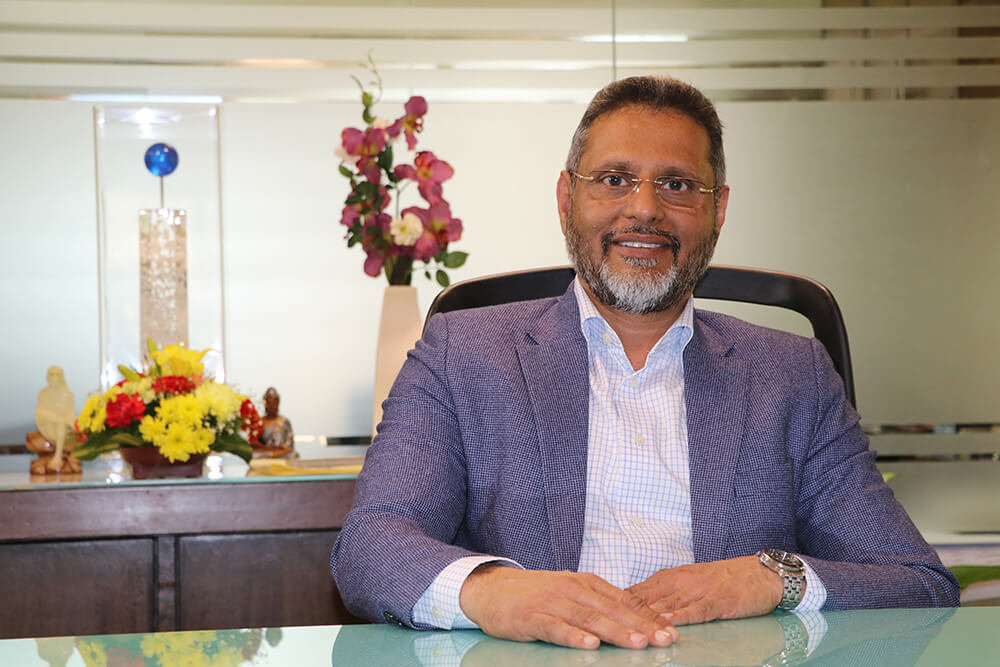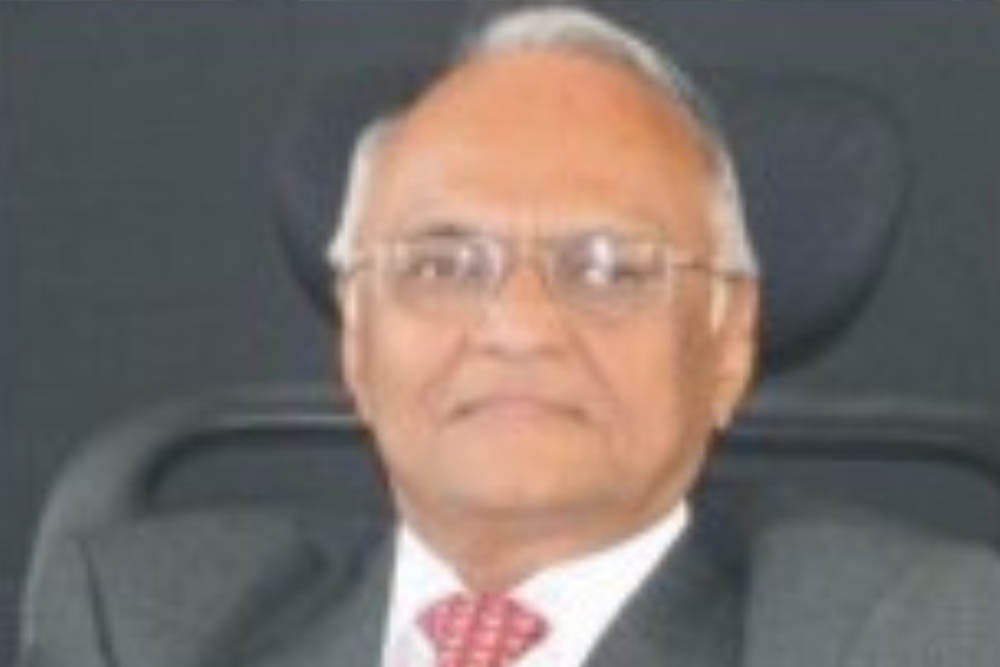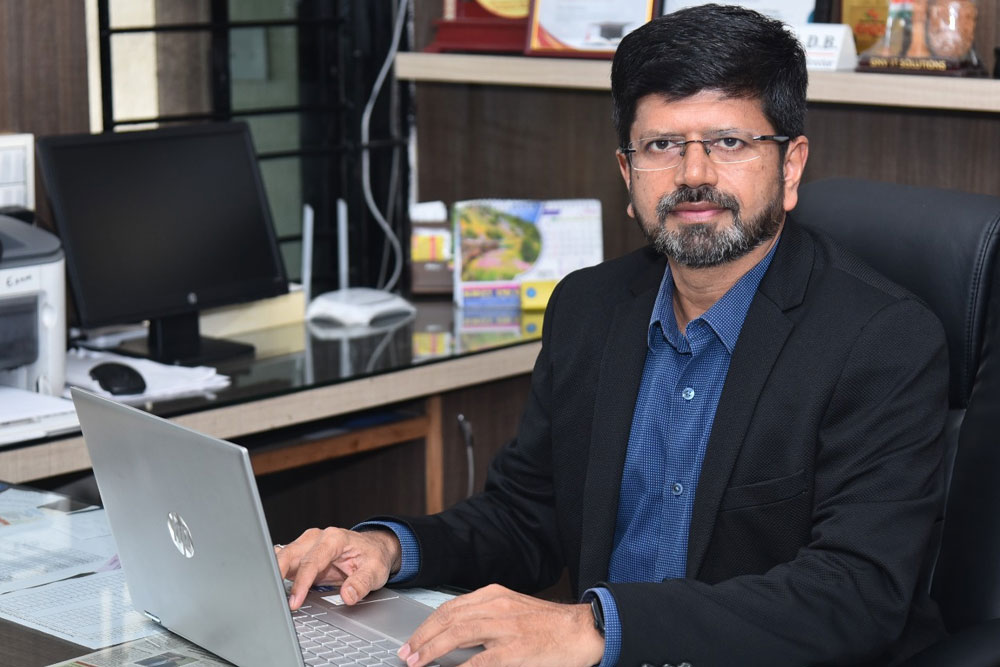 Dr. Chenraj Roychand
Dr. Chenraj Roychand A distinguished Indian educationist, entrepreneur, angel investor and philanthropist with over 40 years of experience...
 Dr. Chenraj Roychand
Dr. Chenraj Roychand  Sri. Achalchand Jain
Sri. Achalchand Jain  Dr. Ganesh D. B.
Dr. Ganesh D. B.  Master of Business Administration (MBA)
Master of Business Administration (MBA)
 Master of Business Administration (MBA) - 120
Master of Business Administration (MBA) - 120
Welcome to the Department of Electrical and Electronics Engineering , Jain Institute of Technology, Davanagere.
Ours is a team of experienced, dedicated, passionate faculty members and highly aspirant, enthusiastic students and skilled non teaching staff. The Department strives to provide its students a completely interactive environment, guidance and a strong counseling system right from the beginning.
The department has set up state of art laboratories such as Basic Electrical Engineering lab, Electrical Machines lab, Analog and Digital electronics lab, Power electronics, Microcontrollers lab, High voltage & Relay lab, Control systems lab, DSP lab, Project development lab & Skill lab. The faculties are encouraged to update and share their knowledge by attending workshops, conferences and many of our faculties have presented papers in national & international conferences and have published papers in national & international journals.
We have formed an Electrical and Electronics Engineering Forum – POTENZA, which serves as a platform for students to exhibit their talents. As a part of Forum activity, we invite resource persons from academics and industries to present expert talks. We have organized workshops on MATLAB, CAED, Renewable energy sources, Smart Grid, SCADA. We regularly organize industrial visits, power station and receiving station visits to enhance the academic as well as field knowledge of students. Our students are encouraged to take up internships in industries nearby to their native places during semester vacation.
Our students have brought laurels to our department and college by winning several prizes in inter college technical and cultural competitions. Few projects of our final year students have been sponsored by KSCST. Our students are given placement trainings from invited experts. Our efforts have yielded good results and many of our students are placed in well-known companies such as Infosys, TCS, WIPRO, DXC, NTT Data, HCL, MU SIGMA, Herin Electronics, Volvo, Accenture, Capgemeni, ATOS, Q-Spiders, etc. Finally, our department is bound to impart excellent and innovative education in Electrical and Electronics Engineering to build highly competent new generation of Electrical and Electronics Engineers.

To create technically superior, highly competent, ethically strong and socially responsible Electrical and Electronics Engineers with innovative and entrepreneurship qualities.
MISSIONM1: To impart excellent Electrical and Electronics Engineering Education by providing Innovative teaching, career focused education and experiential learning.
M2: To create an environment for innovative thinking and contribute to the advancement of science and technology to meet the ever changing needs of society.
M3: To provide student centric platform to produce socially responsible,competent engineers and entrepreneurs with ethical standards.
PSO1: Apply the knowledge of mathematics, science and electrical engineering fundamentals to solve complex problems in electrical machines, control systems, power systems and electronics.
PSO2: Specify, architect and analyze power systems that efficiently generate, transmit, distribute and utilize electrical power in the present context.
PSO3: Analyze, design & maintenance of modern electrical drives system and modern lighting system to conserve electrical energy.
PEO1: To become the resource of Electrical and Electronics engineering.
PEO2: To work in multidisciplinary areas involving core engineering and engaged in lifelong learning for successful professional career.
PEO3: To be successful in taking leadership roles and entrepreneurial positions.
1. Engineering knowledge: Apply the knowledge of mathematics, science, engineering fundamentals, and computer science and engineering to the solution of complex engineering problems.
2. Problem analysis: Identify, formulate, review research literature, and analyze complex computer engineering problems reaching substantiated conclusions using first principles of mathematics, natural sciences, and engineering sciences.
3. Design/development of solutions: Design solutions for complex computer engineering problems and design system components or processes that meet the specified needs with appropriate consideration for the public health and safety, and the cultural, societal, and environmental considerations.
4. Conduct investigations of complex problems: Use research-based knowledge and research methods including design of experiments, analysis and interpretation of data, and synthesis of the information to provide valid conclusions.
5. Modern tool usage: Create, select, and apply appropriate techniques, resources, and modern computer engineering and IT tools including prediction and modelling complex computer engineering activities with an understanding of the limitations.
6. The engineer and society: Apply reasoning informed by the contextual knowledge to assess societal, health, safety, legal and cultural issues and the consequent responsibilities relevant to the professional engineering practice.
7. Environment and sustainability: Understand the impact of the professional computer engineering solutions in societal and environmental contexts, and demonstrate the knowledge of, and need for sustainable development.
8. Ethics: Apply ethical principles and commit to professional ethics and responsibilities and norms of the computer engineering practice.
9. Individual and team work: Function effectively as an individual, and as member or leader in diverse teams, and in multidisciplinary settings.
10. Communication: Communicate effectively on complex computer engineering activities with the engineering community and with society at large, such as, being able to comprehend and write effective reports and design documentation, make effective presentations, and give and receive clear instructions.
11. Project management and finance: Demonstrate knowledge and understanding of the computer engineering and management principles and apply these to one’s own work, as a member and leader in a team, to manage projects and in multidisciplinary environments.
12. Life-long learning: Recognize the need for, and have the preparation and ability to engage in independent and life-long learning in the broadest context of technological change.
| Sl No | Document | View |
|---|---|---|
| 1 | Course Outcomes | Click here to view |

Dr. Santosh M Nejakar
Professor and HoD,
Department of Electrical and Electronics Engineering
Jain Institute of Technology, Davangere
Email: santoshnejakar@jitd.in
